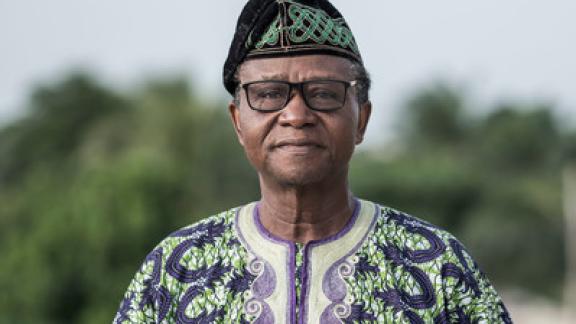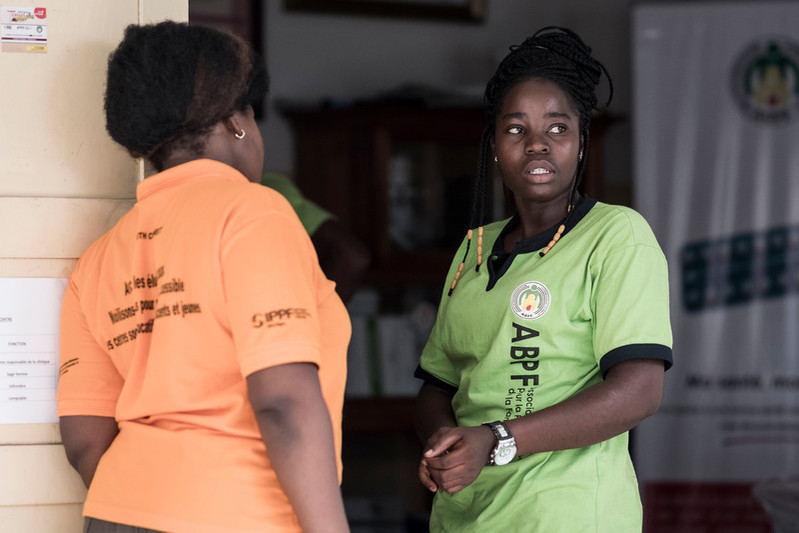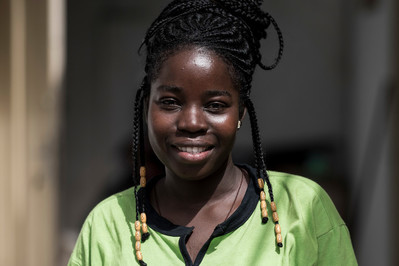When Beninese community leader Simon Gnansounou was first approached by volunteers from the Association Beninoise pour la Promotion de la Famille (ABPF) seeking support to provide abortion-related information and care in the town of Cocotomey-La Paix, he was sceptical. “I thought that it was to organize depravity,” the gregarious economist said at his small home office, surrounded by textbooks. “I was a bit suspicious at first!”
Gnansounou, a highly respected figure in this close-knit neighbourhood, changed his mind after persistent attempts by young volunteers to reassure him they wanted to stop young girls from risking injury and death due to unsafe abortion. “The first goal is actually to help the young girls not to get pregnant,” he added. “It’s a project for social development, and I am all for that.”
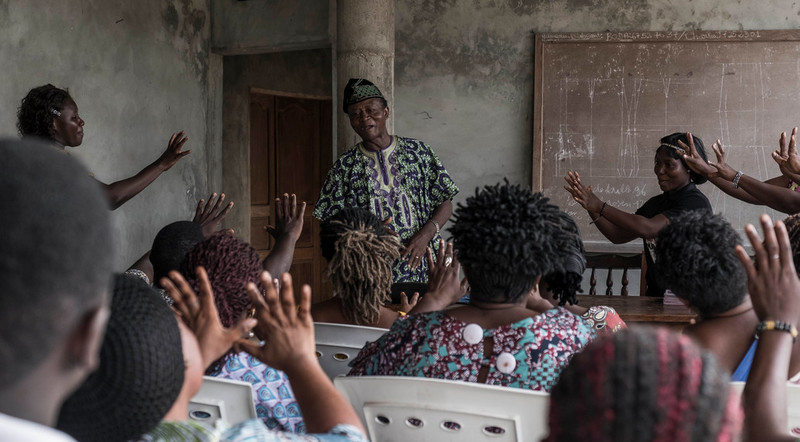
Men like Gnansounou are vital in ABPF’s work to fight abortion stigma in Benin, where 19 percent of births are unplanned and the rate of contraceptive use is around 9 percent of the population, according to the Guttmacher Institute.
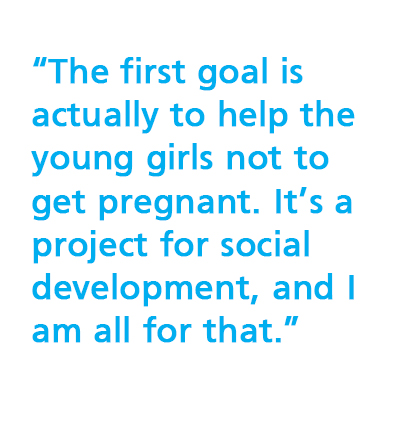 Stigma stops young women from seeking safe abortions and pushes them into the hands of unregulated witchdoctors or advice from friends without medical training. But support from partners, fathers and brothers is making a huge difference, even if they are nervous about discussing sexuality, which remains a taboo subject in Beninese families. “I have four daughters. I have never had the courage to talk about this with them,” Gnansounou said, shaking his head. “This is another chance, a chance that we cannot miss.”
Stigma stops young women from seeking safe abortions and pushes them into the hands of unregulated witchdoctors or advice from friends without medical training. But support from partners, fathers and brothers is making a huge difference, even if they are nervous about discussing sexuality, which remains a taboo subject in Beninese families. “I have four daughters. I have never had the courage to talk about this with them,” Gnansounou said, shaking his head. “This is another chance, a chance that we cannot miss.”
Student for change
Amour, 21, is a student at the University of Abomey-Calavi and a self-declared former “player”. “I started having sex really young. When I was around 12,” he said. “My parents left me to work things out for myself. I had a lot of partners and we didn’t use condoms. I had no idea about that,” Amour adds.
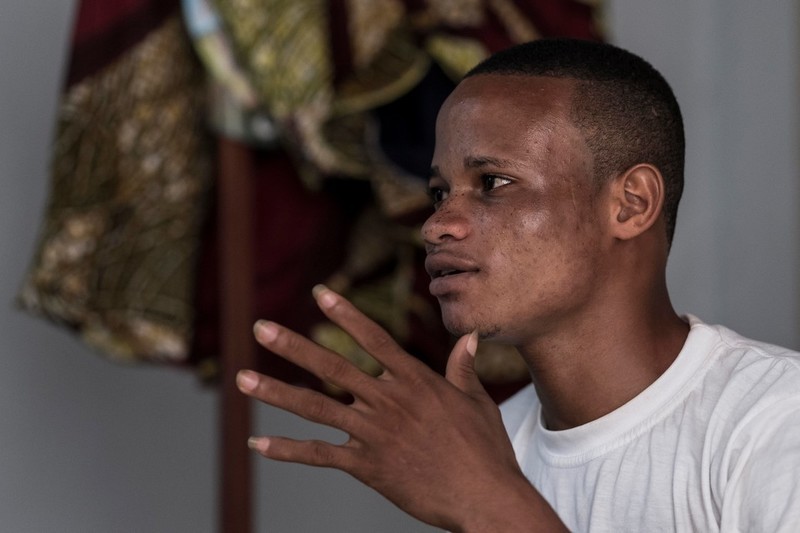
After joining the Young People’s Action Movement, which advocates for reproductive rights among people aged 10-25, Amour decided to abstain for sex for two years as he absorbed material about abortion, stigma and contraception on campus.
When a friend confided that she was pregnant after he noticed her vomiting - the first signs of morning sickness - Amour offered his support. “Her friends told her to take laxatives and other products, to put things in her vagina, to wash with hot water, to move about a lot,” Amour said, shaking his head.
“Thanks to the Youth and Abortion Stigma Project, I had benefited from training on how to talk to girls if they came to ask about abortion.”
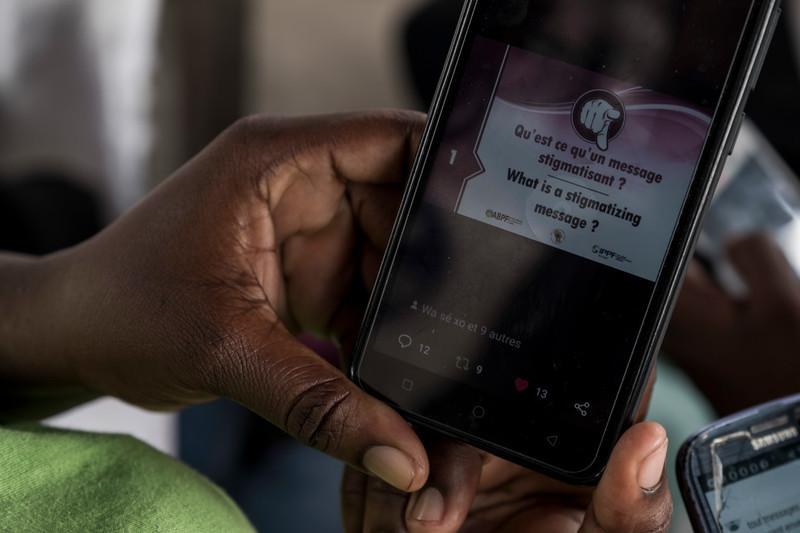
The student tried to act as a mediator with her family when she struck up the courage to tell her parents. “Her mum hit her when she told her she was pregnant,” he recalled. “She accused me of giving her bad advice.”
Amour says he uses condoms with his own partner and feels freer to discuss sexuality than when he was younger. “When we talk about abortion in Africa, and especially in Benin, it’s something people don’t want to hear about. It’s not well seen,” he admits. That hasn’t stopped him from joining community outreach sessions in and around the capital, Cotonou, where he educates school children and young apprentices on their right to choose.
Promoting choice
For Kader, a 26-year-old ABPF youth champion, the effects of unsafe abortion and struggles with unintended pregnancy were “part of everyday life” in his neighbourhood. “A lot of young women I know got pregnant very early,” says Kader, who acts as a link between young people in schools and workplaces and the Association Beninoise pour la Promotion de la Famille (ABPF), in Cotonou. “I know people who have died because of unsafe abortion,” he adds, speaking at ABPF’s centre dedicated to young people, while organising a Twitter discussion focused on stigmatization.
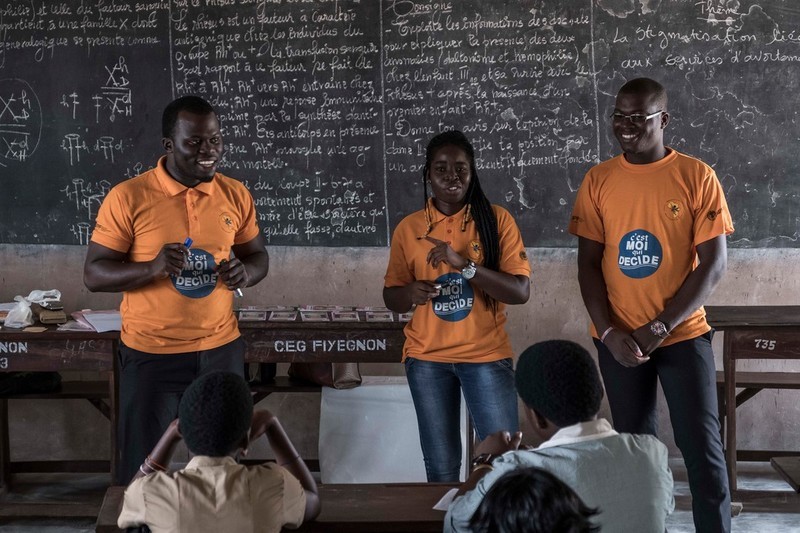
Before joining ABPF’s youth movement in 2011, he admits, he was quick to judge classmates and girls he knew who got pregnant early. Spending the greater part of his twenties learning of the effects of marginalizing young women in this way left him feeling a little ashamed.
“The people I judged in the past made me think about my own behaviour, especially towards one female friend,” Kader explains, as volunteers began drifting in to the courtyard. When his aunt had an abortion, it quickly became public knowledge in the neighbourhood, and he remembers how she was treated. “She had a lot of problems. Everyone taunted her”.
The day after a Twitter session at a school event, Kader gently argues with a teacher who says girls at his school are getting pregnant deliberately, so they can bunk off. Kader asks the group to think about decision making and family support, and how they might act differently if they had full ownership of their choices.
“We can avoid so much of it if people have the right information.” Kader adds.
when
country
Benin
Subject
Abortion Care
Related Member Association
Association Béninoise pour la Promotion de la Famille







